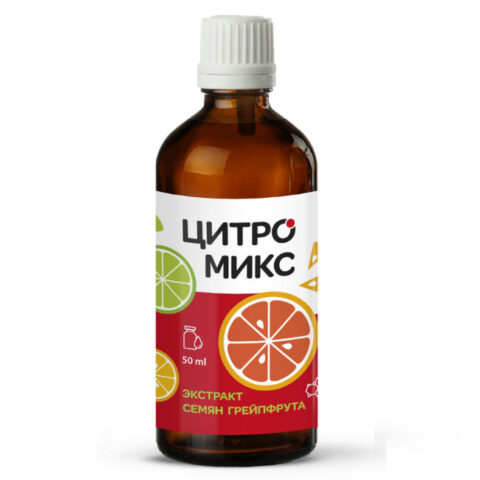Content
- 1 What vitamins are contained in grapefruit?
- 2 How many calories are in grapefruit?
- 3 What are the benefits of grapefruit for the human body?
- 4 Beneficial properties of white grapefruit
- 5 Which grapefruit is healthier: white or red?
- 6 Medicinal properties of grapefruit seeds
- 7 Standards of use
- 8 Harm of grapefruit and contraindications
- 9 Conclusion
The health benefits of grapefruit are recognized by official medicine; nutritionists recommend including it in the menu to provide the body with vitamins, macro- and microelements. However, citrus is not “harmless”: if there are contraindications, when combined with certain products, and even when consumed at the wrong time, it can cause harm to health.
What vitamins are contained in grapefruit?
The medicinal properties of grapefruit are due to its composition. Like any citrus, it is a valuable source of ascorbic acid, which it contains in high concentration. Other vitamins increase the benefits of fruits:
- A;
- D;
- RR;
- E;
- the entire group B (B1-B9).
The benefits of citrus fruit are not limited to the presence of vitamins. Its chemical composition includes:
- macro- and microelements;
- natural antioxidants;
- carotenoids and limonoids (phytonutrients);
- flavonoids;
- amino acids (including essential ones);
- pectin and fiber.

One medium-sized grapefruit completely “covers” the body’s daily need for vitamin C
How many calories are in grapefruit?
Grapefruit's great health benefits come with low calorie content. 100 g of fruits with red and pink pulp contain about 35 kcal, with white pulp - 32.5 kcal.

Considering the average weight of the fruit, the energy value of one citrus fruit is 100-110 kcal
What are the benefits of grapefruit for the human body?
Grapefruit not only supplies the body with vitamins and minerals. Its benefit lies in its beneficial effect on:
- Heart and blood vessels. Their walls become stronger and more elastic. Potassium is necessary to maintain normal blood pressure. In patients with hypertension, there is an acute shortage of it in the body, so citrus becomes its valuable source.
- Liver and kidneys. The benefits of grapefruit for the liver in removing waste and toxins from the body are difficult to overestimate. But when abused, it has the opposite effect, increasing the load on these organs. Citrus is also necessary for the prevention of kidney stones and gall bladder stones.
- Immunity. Vitamin C and bioflavonoids are effective protection against any infections and “seasonal” colds. Its benefits for immunity are especially in demand during spring vitamin deficiency. Citrus is also included in the diet of patients after surgery or serious illnesses.
- Digestive tract. The benefit is to normalize the functioning of the stomach and intestines. You can get rid of constipation, diarrhea, and other disorders.
- Brain.The substances contained in citrus activate the synthesis of acetylcholinesterase. The benefits of this enzyme for the prevention of schizophrenia, age-related dementia, Alzheimer's and Parkinson's diseases have been scientifically proven. It is also necessary for patients with such diagnoses to slow down their development.
- Nervous system. Grapefruit is strongly recommended to be included in the menu for chronic stress, depression, constant mental fatigue, causeless mood swings, attacks of anxiety and irritability, and insomnia. Its benefit lies in normalizing the psycho-emotional state and providing the body with energy.
- Musculoskeletal system. Fruit acids help “dissolve” salts that accumulate in cartilage and vertebrae.
- Oral cavity condition. The pulp and juice of the fruit help strengthen the gums, eliminating constant bleeding. Their benefits in the fight against pathogenic microflora are undeniable.

Baths with grapefruit essential oil - an effective natural antidepressant
The benefits of grapefruit for a woman's body
The beneficial properties of grapefruit for women are, first of all, help in the fight against excess weight. In addition, citrus activates metabolism, helps remove waste and toxins from the body, break down fat, and get rid of cellulite.
The antioxidants contained in the fruits protect the body from free radicals, preventing premature aging. With regular consumption, citrus fruits are beneficial for maintaining youthful skin, healthy hair and nails.
Citrus is also used in home cosmetology. Masks normalize oily skin, “suppressing” the activity of the sebaceous glands, and help get rid of redness, pimples, acne, and other imperfections. In addition, citrus pulp has bleaching properties.

With low calorie content, grapefruit is rich in vitamins and minerals, fiber, which provides a feeling of fullness
The benefits of grapefruit (in the absence of contraindications and, accordingly, harm to health) for pregnant women are undeniable. It helps fight nausea and swelling, reduces the intensity of other symptoms of toxicosis. In the last trimester - reduces the risk of too early birth, protects the fetus from pathogenic microflora. The benefits are also manifested in a positive effect on the mood of the pregnant woman and saturation of the body with vitamins.
The benefits of grapefruit for the male body
The benefits of grapefruit for men are also “multifaceted”:
- “Prevention” of cardiovascular diseases, which occur more often in men than in women.
- Burning fat and building muscle definition. Grapefruit is a valuable addition to physical activity and proper nutrition.
- Removing waste and toxins from the body, including in the fight against alcohol and nicotine addiction.
- Improving the functioning of the genitourinary system.The beneficial properties of grapefruit for men include increasing libido and eliminating potency problems.
Benefits for children
Grapefruit is introduced into the diet of children from the age of 10-12 months, and if they are prone to allergies - from 2.5-3 years. The main benefit is to saturate the actively growing and developing body with vitamins and microelements and provide energy. In addition, citrus strengthens the immune system, normalizes digestion, and stimulates brain function.
Including grapefruit in the diet begins with juice, “masking” the characteristic bitter taste with fruit and vegetable juices, purees that are already familiar to the child, or diluting it with water.
Beneficial properties of white grapefruit
The benefits and calorie content of grapefruit vary slightly depending on the color of the pulp. The main difference between them is taste.
Which grapefruit is healthier: white or red?
“Red” varieties have a slightly higher concentration of antioxidants, vitamin A and lycopene. Therefore, they are in demand by those who want to preserve youth for a long time and prevent the development of tumors, including malignant ones.
The pulp of white citrus is more sour than that of red citrus, the characteristic bitterness is more pronounced. This is due to the reduced sugar content. In addition, these varieties are richer in fiber. The benefits of white grapefruit for those who want to lose weight are undeniable.

Thanks to its low glycemic index, white grapefruit is a valuable addition to the diet for any type of diabetes.
Medicinal properties of grapefruit seeds
Not only the pulp, but also the seeds of grapefruit will bring health benefits. They contain more antioxidants than the peel. Grapefruit seeds are not consumed in their “pure form”; an extract is obtained from them through industrial processing.
Before use, the “concentrate” is diluted with water. It is impossible to drink it undiluted - the extract is very caustic, bitter and sour.

Undiluted extract may seriously burn the oral mucosa and esophagus.
The health benefits of grapefruit seed extract are “multifaceted”:
- destruction of pathogenic microflora and helminths in the gastrointestinal tract, treatment of nail fungus, dermatological diseases, dandruff, destruction of bacteria in the oral cavity;
- prevention of cardiovascular diseases, lowering cholesterol levels;
- promoting weight loss, “correction” of appetite;
- “exacerbation” of cell sensitivity to insulin;
- “suppression” of the development of tumors, including malignant ones;
- disinfection of wounds, abrasions, burns, opened calluses, and other mechanical damage to the skin;

Seeds contain more fruit acids than pulp
Standards of use
Despite all the health benefits, it is not recommended to overuse grapefruits. According to nutritionists, the optimal daily intake is 200-250 g of pulp or 80-100 ml of juice. The exception is for patients who are prescribed a grapefruit diet - before each meal they eat half a citrus fruit or drink 100 ml of juice, diluting it with water 1:1.

Grapefruit pulp and juice are quite “interchangeable”
When is the best time to eat grapefruit?
There is no consensus among nutritionists regarding when to eat citrus in order to get the maximum benefit from it. A high concentration of vitamin C effectively improves body tone and provides a surge of energy, which is necessary in the morning. In addition, citrus activates the appetite, and not everyone can fall asleep with a feeling of “emptiness” in the stomach.
On the other hand, grapefruit stimulates metabolism. At night, the body processes fats faster and more efficiently, so for weight correction, the maximum benefit from citrus can be obtained by consuming it in the evening.
Accordingly, the time when it is best to eat grapefruit is determined individually. In the absence of contraindications associated with gastrointestinal diseases, the maximum benefit is obtained from it when consumed in the morning on an empty stomach and after intense physical and mental stress.

If the acidity of the gastric juice is high, grapefruit eaten in the morning on an empty stomach may not benefit the body.
In the evening, grapefruits should be eaten 2-3 hours before bedtime. Citrus fruits, despite their high fiber content, are digested quickly, in 30-45 minutes. However, they can cause sleep disturbances and are incompatible with many medications taken at night.
What is best to combine with
The fruit goes best in cooking with:
- seafood;
- any lean meat and poultry;
- fermented milk products;
- hard cheeses;
- greens;
- other citruses.

If the acidity of the gastric juice is high, grapefruit eaten in the morning on an empty stomach may not benefit the body.
There are also “unsuccessful” combinations:
- fatty meat, poultry, game;
- legumes (peas, beans, beans) and rice;
- nuts;
- baked goods made from wheat flour;
- milk;
- bananas.
All these are “heavy” foods, rich in fats and starch. When consumed together, the benefits of citrus almost disappear, but it puts an increased load on the digestive system, causing bloating, noticeable discomfort in the stomach, and bouts of diarrhea.
Harm of grapefruit and contraindications
Despite the long list of beneficial properties, there are also contraindications for consuming grapefruit, in the presence of which it should be excluded from the menu:
- increased acidity of gastric juice, gastritis, stomach and intestinal ulcers;
- chronic kidney disease;
- hypertension;
- caries, other problems with tooth enamel.
Grapefruit contains furanocoumarin. If it and the medication enter the gastrointestinal tract at the same time, it is the citrus that begins to be digested first. Accordingly, the drug will not work immediately. The combination of grapefruit with medications of the following groups is especially dangerous:
- analgesics;
- antibiotics;
- antidepressants;
- anticoagulants;
- antihistamines;
- anxiolytics;
- contraceptives;
- hormonal;
- antitumor;
- antiarrhythmic;
- antitussives;
- hypotensive.

Grapefruit should be checked for compatibility with any medications in consultation with a doctor.
Grapefruit, like any citrus, is a strong potential allergen. Individual intolerance occurs quite often. The intensity of the negative reaction may vary; in any case, there will be no benefit from its use. And during pregnancy and breastfeeding, possible allergies in the child must be taken into account.
Conclusion
The benefits of grapefruit are not limited to its medicinal properties and disease prevention.Citrus is successfully used in dietetics and home cosmetology. Despite the richness of vitamin and chemical composition, you will have to refrain from consuming grapefruit if there are contraindications. It is also not recommended to overuse citrus and combine it with certain foods.








